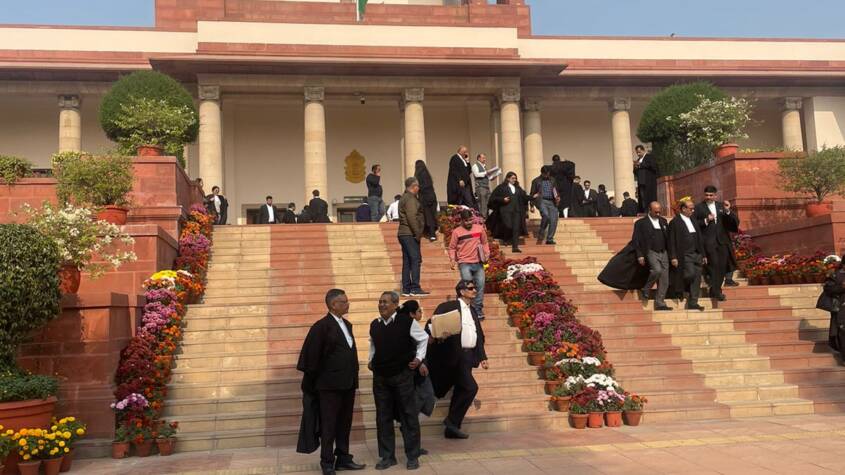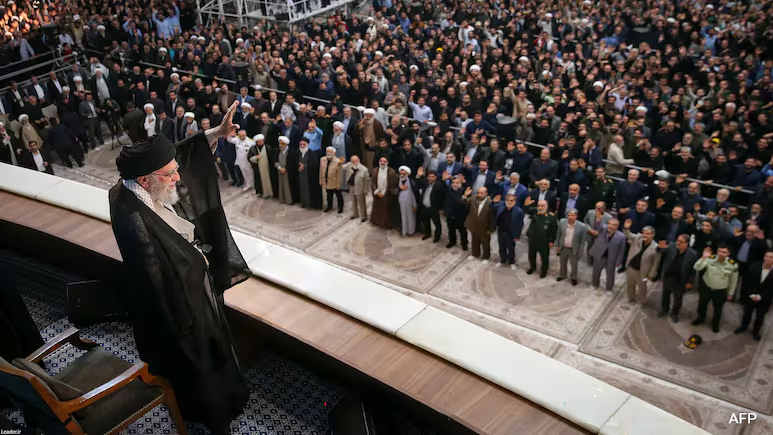CJI Chandrachud trashes allegations against Collegium System, refuses to respond to criticism over Art 370 verdict
Says to maintain credibility of SC, we have to ensure allocation of cases in manner not lawyer-driven
New Delhi: Chief Justice of India D Y Chandrachud on Monday rubbished the allegation about lack of transparency in the collegium system where judges appoint judges to constitutional courts and desisted from responding to criticism of the Supreme Court judgement upholding the abrogation of Article 370 of the Constitution that bestowed special status on the erstwhile state of Jammu and Kashmir.
Chief Justice said Supreme Court will be able to maintain its credibility if it ensures allocation of cases to benches are not “lawyer-driven”.In an exclusive interview, the CJI responded to the allegations about politically important cases being earmarked to particular judges of the Supreme Court.”I am very, very clear in my mind that if the credibility of the institution of the Supreme Court is to be maintained, we have to ensure that the allocation of cases in the Supreme Court is not going to be a lawyer-driven allocation,” he said.
“It has to be an allocation which we do in terms of our system laid down in the Supreme Court,” the CJI said, adding “You have to trust your decision makers.”Senior lawyers like Prashant Bhushan and Dushyant Dave had recently questioned the way important matters were reassigned to judges.Underlining that there are “well-defined structures” for the allocation of cases, he said they were assigned through the roster, according to which, the subject matter is printed in advance under the authority of the chief justice.”The roster is notified for everyone to see. It is in the public realm. It is published on the website of the Supreme Court,” the CJI added.
He said every Supreme Court judge is entitled to decide any case that the CJI assigns.”No lawyer can insist that I will have my case decided by a particular judge. That does not do justice either to the credibility of the individual judge or the purity of the administration of justice,” the CJI said.He said if a judge recused himself from a case, the CJI reassigned it to a senior or junior judge.”Once the case is assigned to a judge, that case follows the judge unless a judge falls sick and says I don’t want to take up this case because I am not on duty next month. This case has to be reassigned,” the CJI said.
Chief Justice of India DY Chandrachud on Monday refused to fuel any further the controversy over the Supreme Court’s unanimous verdict upholding the abrogation of Article 370 of the Constitution that bestowed special status on the erstwhile state of Jammu and Kashmir, saying tersely the judges decide a case “according to the Constitution and the law”.The CJI also spoke candidly about the five-judge constitution bench verdict refusing to legalise same sex marriages and said the outcome of a case is never personal to a judge.The 50th Chief Justice of India, however, acknowledged the “long and hard battle” queer couples fought for realisation of their rights.
On October 17, a five-judge bench of the Supreme Court refused to grant legal recognition to same-sex marriage but recognised equal rights for queer people and their protection.“Once you decide a case you kind of distance yourself from the outcome. Outcomes are never personal to us as a judge. I never have any regrets. Yes, I have been in a majority in many cases and minority in many cases. But the important part of the life of a judge is never to associate yourself with a cause. Having decided a case, I leave it at that,” he said.
On the Supreme Court verdict on Article 370 and its criticism, he said, the judges speak their mind through their judgement which becomes a public property after the pronouncement and people in a free society can always make their opinion about it.“So far as we are concerned we decide according to the Constitution and the law. I don’t think it will be appropriate for me either to respond to the criticism or mount a defence to my judgement. What we have said in my judgement is reflected in the reason present in the signed judgement and I must leave it at that,” the CJI said.
OSC Center: A Ray of Hope for the Destitute Women in Kulgam District
Kulgam OSC center solved 174 cases out of 221 cases received since 2023, provided psycholo…










